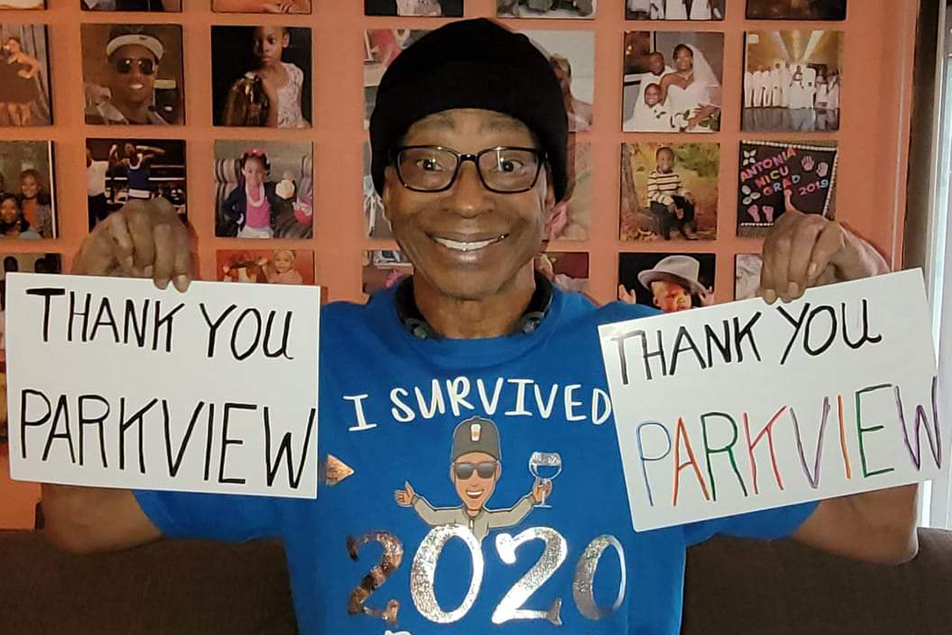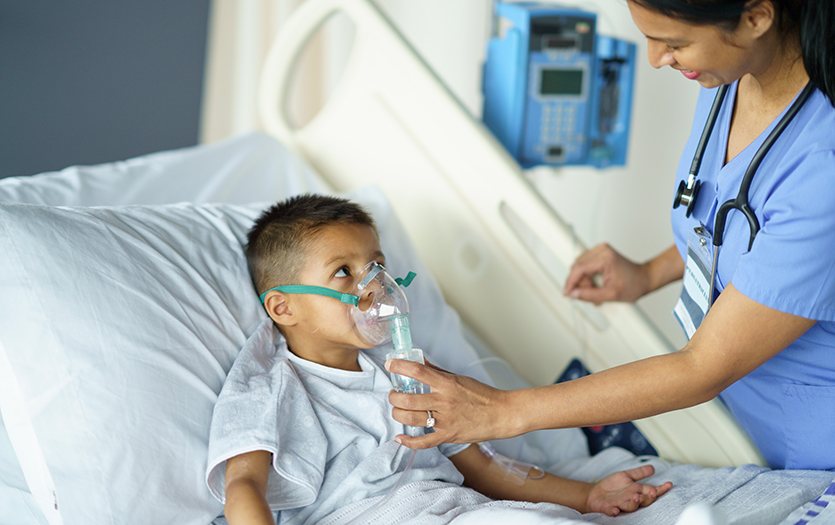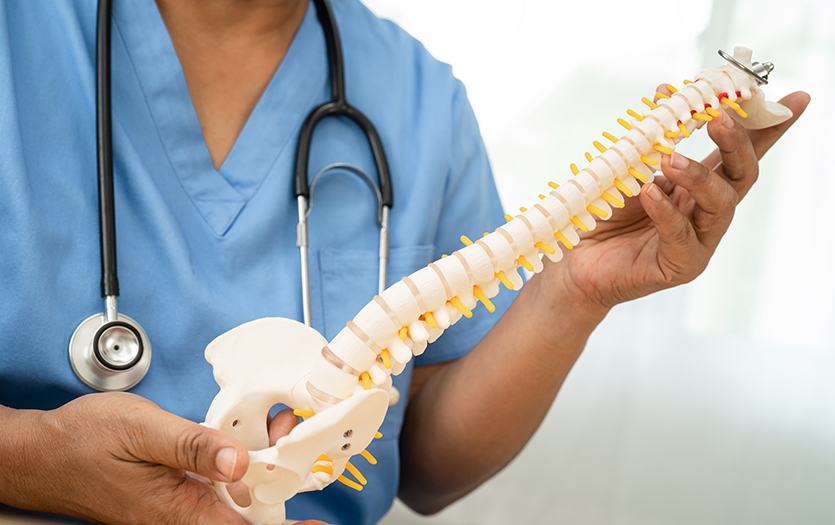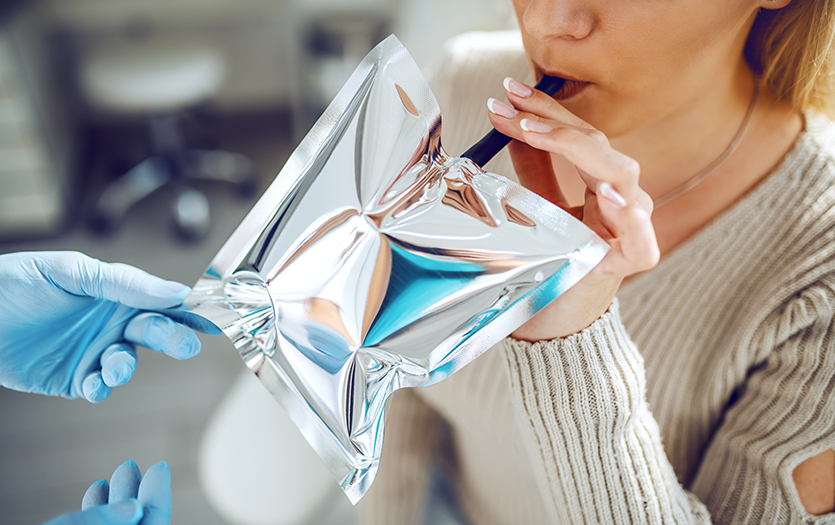
According to the National Institutes of Health, approximately 30,000 Americans per year suffer a brain aneurysm rupture. An aneurysm transpires when part of an artery wall weakens, allowing it to balloon or widen abnormally. If the artery continues to swell, the bulge can rupture and cause internal bleeding. While aneurysms can occur in any part of your body, they’re most common in the brain, aorta, legs and spleen.
The exact cause isn’t always known, but certain factors often contribute to the condition. In some cases, aneurysms may be congenital, due to aortic disease or because of an injury. Other factors that may increase your risk include family history, high blood pressure, high cholesterol and smoking.
Unfortunately, this was the case for Greg Williams. Less than a month after retiring, he suffered a ruptured brain aneurysm. In hopes of shining a light on a condition that affects thousands, we asked Greg to share his story and expand on the exceptional care he received.
How was your health leading up to the aneurysm?
My health leading up to the ruptured aneurysm wasn’t horrible. My blood pressure and cholesterol were a little high, but I was on medication and managing both conditions. I had them under control. I also wasn’t overweight. I was 160 pounds and exercised regularly. I was constantly moving or working around the house.
I thought I was in relatively good health. It seemed like everything was fine, and then it wasn’t. It was terrifying. I've only ever visited the hospital for the birth of my grandchildren, so I was shocked when I woke up and realized I’d been admitted.
What do you remember about the day of your ruptured aneurysm?
Looking back, the day of the aneurysm and the day before were completely normal. They were like any other day. I felt fine. I was going through things, reading books and playing with my grandchildren. I didn’t do anything out of the ordinary, nothing strenuous.
Honestly, I don’t remember much after I lost consciousness, but that night I went to bed like normal. I woke up in the middle of the night to go to the restroom when my wife, Donna, heard me hit the floor. She found me unconscious in the bathroom.
She didn't try to move me. Instead, she talked to me and asked me questions, but I didn't respond. That’s when she called 911. Once the paramedics arrived, they assessed me, put me into the ambulance and transported me to Parkview Hospital Randallia.
According to my wife, once we arrived at the hospital, the doctors ordered a CT scan, revealing that I had suffered a ruptured brain aneurysm. At that point, they did everything they could to keep me stable, loaded me back into the ambulance and transferred me to Parkview Regional Medical Center. As soon as we arrived, they were prepping me for surgery.
What were your initial thoughts after hearing your diagnosis?
At first, I didn’t know what an aneurysm was, so I was shocked and confused. However, my initial thought was that it was something that happened to other people, not me. Once they explained what happened, a blood vessel burst in my brain. I couldn’t believe it. I was so surprised. I’ve never had any trouble with my health before this happened. I was in pretty good shape and felt fine. I’d never had a broken bone, backaches, headaches or anything leading up to it.
After they told me it was an aneurysm, I tried to think if I had known anyone else that might have suffered one. I remembered my grandmother died when I was little. Back then, because my brothers, sisters and I were so young, they just said grandma passed away. But, as we grew up and got older, we found out that grandma had an aneurysm.
Can you tell us a little bit about your recovery?
Right now, I’m feeling great, but I had lost about 20 pounds. Thankfully, my wife, Donna, got me back to my normal weight with her fantastic cooking. So far, nothing hurts, and I don’t have any headaches. I did have a little back pain afterward, which I’ve never had before, but the doctors told me it was a side effect from the ruptured aneurysm. With medication and my therapy, it went away. Now, I'm back to picking up objects and going about my day as usual.
As for my therapy, I went through a program at Parkview Hospital Randallia. My therapists were wonderful. They were very kind and encouraging, but when I needed a little extra push, they were respectful and got me to where I needed to be. With their help, I was able to graduate from therapy early. I couldn’t have done it without them. As of today, I’m doing very well. I feel great, and I’m so glad to be back to my old self.
What would you tell others going through a similar experience?
I would say be sure to live a healthy life. Eat well, exercise and love your people. Try to be the best person you can be and thank the Lord every day that you're still here. You see, I have four brothers, two sisters, a lot of cousins, aunts and uncles, so if my experience can shed some light on things while sharing vital information with them and change their lives for the better, then I’m happy to share.
Is there anything you’d like to say to your care team?
Yes, I would like to say thank you, especially to my nurses. They were straight from heaven. I’ve never been treated so well. Yes, they brought me my medications, made sure I got up, walked around, and helped me go to the restroom, but it was more than that. They were so kind and caring and treated me with respect.
Also, Shamir Haji, MD, PPG – Neurology, and Garrett Bennett, MD, PG – Neurointervention, are the best doctors. I want to tell them thank you as well. Thank you for saving me. I was so scared. I didn't know what was going on or if I’d survive, but they took the time to speak with us and explain everything, which helped calm me down and put my fears at ease.
I’m so glad Parkview was there when I needed them most. I am incredibly thankful for the nurses, doctors and paramedics who were involved in my care. I can't remember everyone’s name, but they were amazing. Everyone was so fast and expeditious. I appreciate all of them and everything they do for other people. I want them to know that their efforts do not go unnoticed. I can’t say it enough. Thank you. Thank you for saving my life.
A word on prevention
There are several ways to help lower your risk of aneurysm. It’s best to work closely with your primary care provider to:
- control high blood pressure
- maintain healthy cholesterol levels
- consume a healthy diet
- engage in regular physical activity or exercise
- manage your stress levels
- quit smoking
Remember, a ruptured aneurysm is considered a medical emergency. If you or a loved one show any signs and symptoms, please call 911 and seek immediate medical attention.



